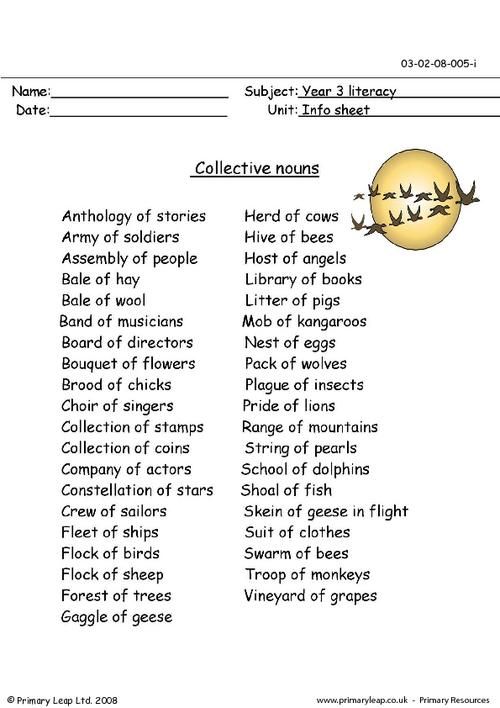As a native English speaker I can only imagine the problems collective nouns cause to learners!
Put simply, this is a way of describing a group of something. It dates back to medieval England and France when hunting amongst the nobility was an important pass time. Most collective nouns started with hunting animals and birds and, as the language evolved, spread to just about anything!
‘A wake of buzzards’
‘A charm of finches
‘A nest of mice’
‘A stalk of foresters’

Now, you may be thinking this is ridiculous and just about impossible! If EVERY noun in English has a different collective how can ANYONE learn them all? And you are absolutely right, YOU CAN’T!
Some collectives are well known to English speakers such as ‘A herd of cows’ or ‘bunch of keys’, but they are often used in games too, particularly with young ones, trying to guess the Collective Noun of an obscure animal! The important thing is not to sound ‘wrong’. So this blog is aimed at trying not to let that happen!
There are no rules set for the English language as there are for French or Spanish. English is a melting pot of languages, often brought by various invading groups. Oxford University Press state what is or has been most used in the language rather than set rules.
To try to simplify this there are 3 levels in the use of collective nouns.
- Use a general name for animals, objects or humans, like ‘group’ or ‘herd’. Not very precise but this may work if the General name is right! Do NOT use the word ‘herd’ for humans unless you are wanting to imply they are acting like animals! ‘Following the herd’ means acting without thinking, just doing what everyone else does.
- Use common, well known collective nouns only. There are some collective nouns that everyone knows e.g. ‘A pride of lions’, ‘A Bunch of Flowers’. Learn these well known ones then use general terms for the more obscure or unknown. (This is what most English speakers do!)
- Try to accurately find out the Collective name for something. This will only work for written projects or work as you have time to look it up!
As time goes by, an English speaker’s knowledge of collective nouns increases, children love to learn new ones, they appear in puzzles and games frequently. Very VERY few ordinary English speakers will know them all!
So, here are some General words you can use if you don’t have time to think of the right one.

Even these are tricky but:-
GROUP or CROWD can often be used for most humans. Crowd implies a very large group.
HERD can be used for farm animals. Cows.
PACK for wild animals. Dogs, wolves
FLOCK for birds.
There are always exceptions though, and the exception here is that ‘Flock’ is also used for sheep!
Objects are more difficult:
BUNCH tends to imply something you are holding, clumped together. Keys, flowers, grapes even!
PILE is used for…well a pile of something! Bricks, logs.
SET is used when it is an organised group of something, like a set of stickers (a collection). Stickers, stamps, mugs, jugs.
Here is a list of some of the most common in use in ordinary, everyday English
A Herd of Elephants
A Parade of Elephants
A Flock of sheep
A Pride of Lions
A Skein of Geese (flying in formation)
A Gaggle of Geese (on the ground)
A Brood of Chickens
A Pack of Dogs
A School of Fish
A Shoal of Fish (more linked to fishing)
A Pod of Dolphins
A Bouquet of Flowers
A Bunch of Flowers
A Bunch of Grapes
A Flock of Birds
A Pile of Bricks
A Cloud of Dust
A Pair of Shoes
A Pair of Trousers (not actually a pair, just 2 legs!)
A Bunch of Keys
A Group of Boys
A Crowd of Protesters (larger group)
A Litter of Kittens
A Litter of Puppies
A Pile of Logs
A Set of Jugs
A Set of Mugs
A Handful of Dust
A Murder of Crows
A Nest of Snakes

An example of a primary school worksheet for British Children

This aspect of English is very hard to get right, getting it wrong, however, will sound jarring and foreign. It’s worth the effort to get to know some of more usual ones as it will make your English sound more advanced and mature.
If all knowledge fails you at the last minute (as it does with me sometimes with French) resort to ‘SOME’ (if you can’t count them) or ‘A FEW’ (if they are countable). Sadly it often appears simplistic though or childlike but useful as a last resort and certainly not ‘wrong’!
Vocabulary:
Nobility = A was of describing the upper classes in medieval times. They usually had a Title e.g. Lord, Lady, Sir, Baron, Earl, Viscount, Duke, Duchess.
Evolved = Changed, improved, developed.
Obscure = Lesser known, hidden, not known, strange, different.
Melting pot = An old-fashioned term for a cooking pot where all ingredients are added together at the same time and cooked slowly.
To Look it Up = A phrasal verb meaning to look for information in a book, library or the internet. ‘I didn’t know the answer so I looked it up on the internet’.
Tricky = Difficult, hard to achieve, not impossible but tricky!
Jarring = Discordant, out of place, doesn’t feel right.
To resort to something = To do something as the last attempt, having tried all other methods. ‘After trying everything, I eventually resorted to phoning for help’.
Last Resort = The last thing you try!
